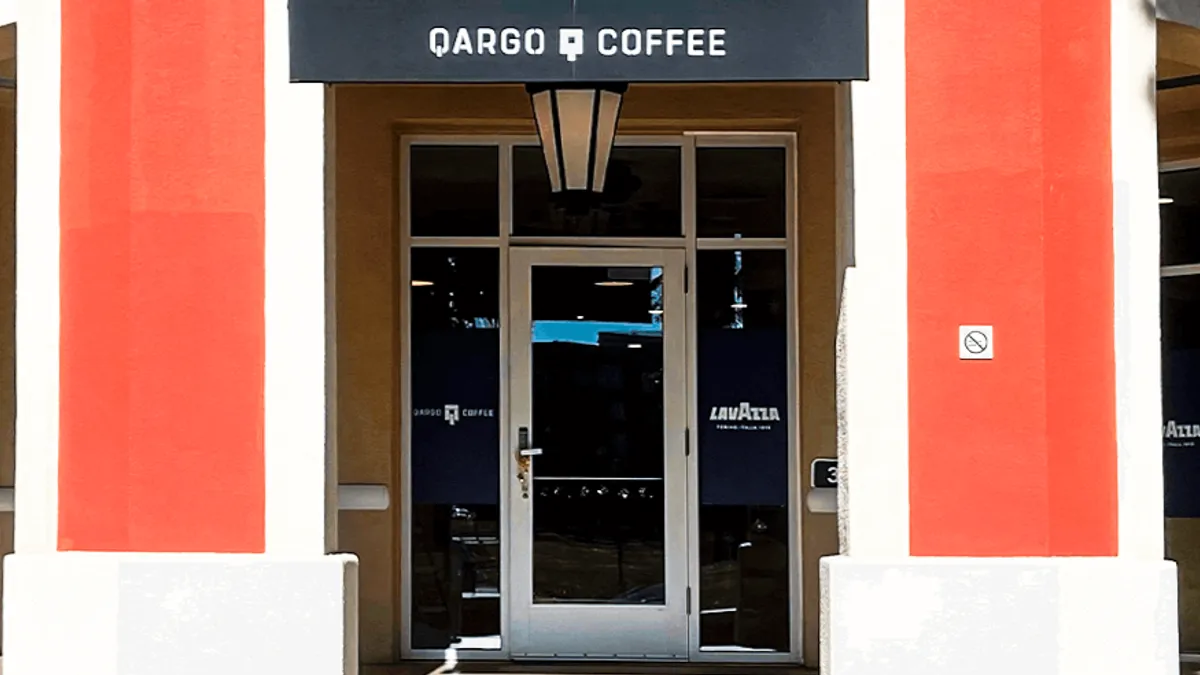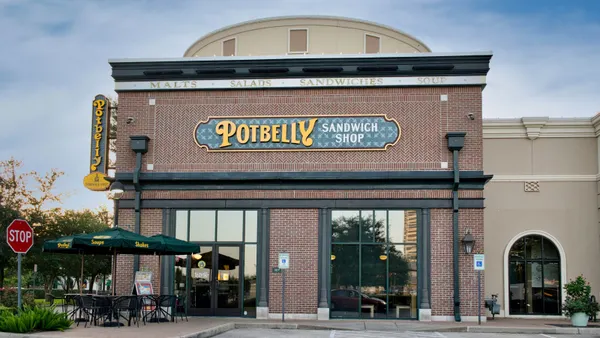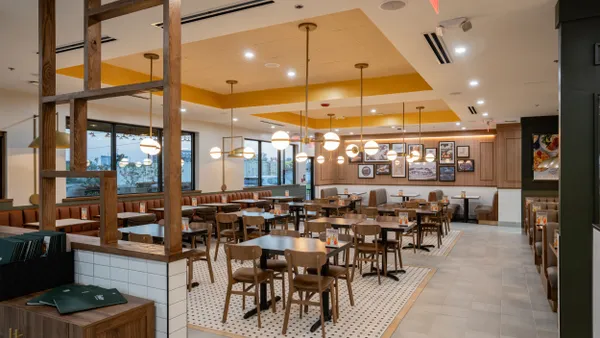Editor’s note: This story has been updated to include statements from Mark Bastorous.
Dive Brief:
- The Federal Trade Commission issued a proposed order against Qargo Coffee for failing to provide critical information required by the Franchise Rule, including one of its founder’s’ ties to the now defunct Burgerim, the agency said in a Thursday press release.
- The proposed order imposed a $1.3 million judgment, but will require the defendants to pay $30,000 due to their inability to pay the full amount.
- This is the second case in recent years in which the FTC has alleged violations of the Franchise Rule. It sued Burgerim in 2022 over making false promises and misleading franchisees.
Dive Insight:
Qargo has been franchising throughout the country since May 2020 and signed 59 franchise and distribution agreements between the beginning of 2021 and October 2023, with operators paying over $1.25 million to the company to open a shop, per the complaint.
Despite signing nearly 60 agreements, franchised growth has been slow at Qargo, which listed only two franchised units at the end of 2023, per its franchise disclosure document. Qargo’s website lists 10 locations open with another 10 “opening soon.” The company offers kiosk and drive-thru stores in addition to traditional locations, according to its website.
Still, the company has projected significant growth, with 117 locations expected to open within the next fiscal year, per its franchise disclosure document. The biggest target for growth is Florida, where it expects 15 openings.
The Franchise Rule protects consumers who purchase a franchise by requiring a franchisor to clearly and accurately explain information about a franchise opportunity, including executives’ business, litigation and bankruptcy history. It also should provide total costs and clearly state the time that it takes to open a location, the complaint states.
The FTC has taken particular issue over Qargo and its founders Mark Bastorous, Bernadette Bastorous and Samir Shenouda not properly disclosing their business history and experience. The FTC also claims that the company made “misrepresentations about how long it takes for franchises to get off the ground and whether there were any bankruptcies that needed to be disclosed,” the press release said.
For example, the complaint said Mark and Bernadette Bastorous failed to disclose filing for Chapter 7 bankruptcy after running Steak ‘n’ Shake franchises. Mark Bastorous also worked as a development manager at Burgerim, which went on to sell 1,500 franchise outlets across the U.S. that never opened. This led to a significant controversy and lawsuits by several state agencies and the FTC, which said Burgerim violated the Franchise Rule and FTC Act.
Mark Bastorous said in an email to Restaurant Dive that he did not have any involvement in Burgerim’s fraudulent activities. He claimed that after buying territory rights for the chain in Florida in 2018, he discovered the business model was unsustainable and “potentially fraudulent,” and terminated his independent agreement with Burgerim in January 2019.
“The Federal Trade Commission’s (FTC) implication that I was involved in Burgerim’s fraudulent activities is both incorrect and unjust. I was, in fact, one of the many individuals who was misled and financially harmed by the company,” Bastorous said. “To accuse me of being a participant in these activities without any concrete evidence is not only unfair but also legally unfounded. I respectfully request that my name be cleared of any association with Burgerim’s fraudulent activities, as I was not a part of their scheme. Instead, I was a victim who was deceived and financially impacted by their unethical practices.”
In a separate statement, Bastorous said he was forced to file bankruptcy over his Steak ‘n’ Shake operations after his former partners “turned against me” and filed over a dozen lawsuits accusing him of fraud. He said he ended up having to file bankruptcy since he couldn’t afford the legal fees and to “protect my family.”
While Mark Bastorous was not involved in misleading franchisees at Burgerim, Restaurant Dive’s review of Qargo’s FDD shows that it does not include his prior history with either of these companies. The disclosure does state the Bastorous' filed for Chapter 7, but does not explain why.
The FTC also stated that Qargo described franchisees in California as “licensees” and is not registered in the state to sell franchises, but continued to market units.
In addition to the financial judgment, the FTC’s proposed order requires Qargo and its founders to provide written notice to operators and licensees that they have a right to rescind their contracts without penalty; prohibits the enforcement or or threats to enforce any noncompete agreements; prohibits the defendants from making any misrepresentations or omitting information to prospective operators; and requires defendants to comply with the Franchise Rule, including providing FDDs to any prospective franchisees.
Qargo Coffee did not reply to a request for comment by press time.










